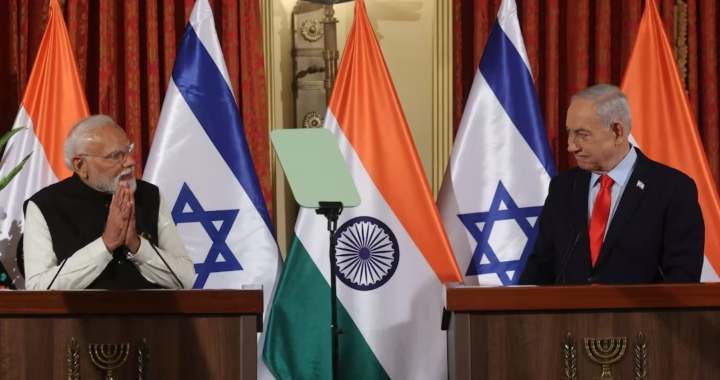Taiwan-India security cooperation indispensable for the Indo-Pacific

China’s expansionism with its accumulating military strength and toughening posture is an alarming signal to the world. By conducting sand-filling-for-land and salami-cutting tactics, China has gained a geo-strategic advantage in the South China Sea. We have also seen China adopting similar coercive ways to create strategic superiorities in the East China Sea, the Taiwan Strait and the Sino-Indian border. Although all Chinese leaders, including current President Xi Jinping, have reiterated that the country would not seek hegemony, the rising nationalistic sentiments at home are forcing the government to continue the military adventurism in periphery areas.If the neighboring countries choose not to react, it will send the wrong message to China and encourage the latter to gain more in disputed territories. That is why the Quad is so important in world politics today. By combining the strength of four major powers in the Indo-Pacific region, this coalition shows their willingness to maintain regional stability and restore norm-based maritime order. Creation of the Quad certainly has a great impact on Taiwan’s security: any military attack against Taiwan is a direct challenge to the common interests of the Quad members. But since Taiwan is not a member of the Quad architecture, the best way for Taiwan to join is to build up cooperation through bilateral partnership, which Taiwan has already done with the United States and is likely to do with Japan in the future. Taiwan’s influence in terms of military strategy is smaller than the Quad members, but it has played a unique role in counterweighting China’s military adventurism from the eastern side.From a geopolitical point of view, Taiwan is located at the centre of the first Island Chain in the Western Pacific. This means China’s attack or occupation of Taiwan will encourage its navy to acquire the capability of power projection to the entire Pacific Ocean. Acquisition of Taiwan will also allow China to secure its strongholds in the South China Sea, and further extend its influence to the Indian Ocean. That is why the People’s Liberation Army (PLA) Air Force has constantly intruded into Taiwan’s Air Defense Identification Zone (ADIZ) in the past two years. The purpose of such harassment is to place Taiwan and surrounding waters into China’s sphere of influence, thus altering the status quo of the Taiwan Strait that has been delicately maintained for seven decades.Taiwan has bravely confronted China for over 70 years. Such unique experiences trained Taiwanese people to know Chinese leaders’ thinking and ambition better than anyone else in the world. That is why the Taiwanese government successfully detected the outbreak of Covid-19 in China and then introduced preventive measures against the virus invasion early last year. Taiwan has more to share with like-minded partners, ranging from economic warfare to cyber security. In fact, we have already cooperated with Quad members US and Japan to combat Covid disinformation through Global Cooperation Training Framework (GCTF). This international training network also promotes multilateral cooperation in public health, law enforcement, women’s empowerment, energy efficiency, e-commerce, cybersecurity, humanitarian assistance and disaster relief (HADR), and media literacy.Both India and Taiwan have shown interest in promoting bilateral cooperation. India’s Act East Policy aimed at upgrading relations with East Asian countries, while Taiwan’s New Southbound Policy targeted South and Southeast Asian states, including India. Nevertheless, the exchanges are largely limited to economic and educational areas. Strategic cooperation remains lacking or is progressing slowly. Given the fact that India and Taiwan share the same democratic values and face common security threats, there is no reason for both sides not to explore cooperation in security-related areas. For instance, language-training programs between both sides shall be extended to active officers, governments between both sides shall explore high-level dialogue in high-tech areas such as cyber-warfare or space technologies. It is also necessary for military think tanks from both sides to conduct joint research on the PLA. China has been recruiting and cooperating allies around India’s neighborhood. There is no reason for India to restrict itself and not to seek partners.Another possible scenario is for India to support Taiwan’s participation in the existing programs under Quad, or promote creation of a more comprehensive multilateral alliance named Quad Plus, and invite Taiwan to join it. Before such opportunities appear, Taiwan should endeavour to upgrade its security cooperation with India in the above mentioned areas. Only by conducting intensive exchanges between both sides will we know our common interests and relative strengths. In other words, Taiwan-India security cooperation is a small but indispensable part of the collective security web across the Indo-Pacific region.
SOURCE: SUNDAY GUARDIAN


